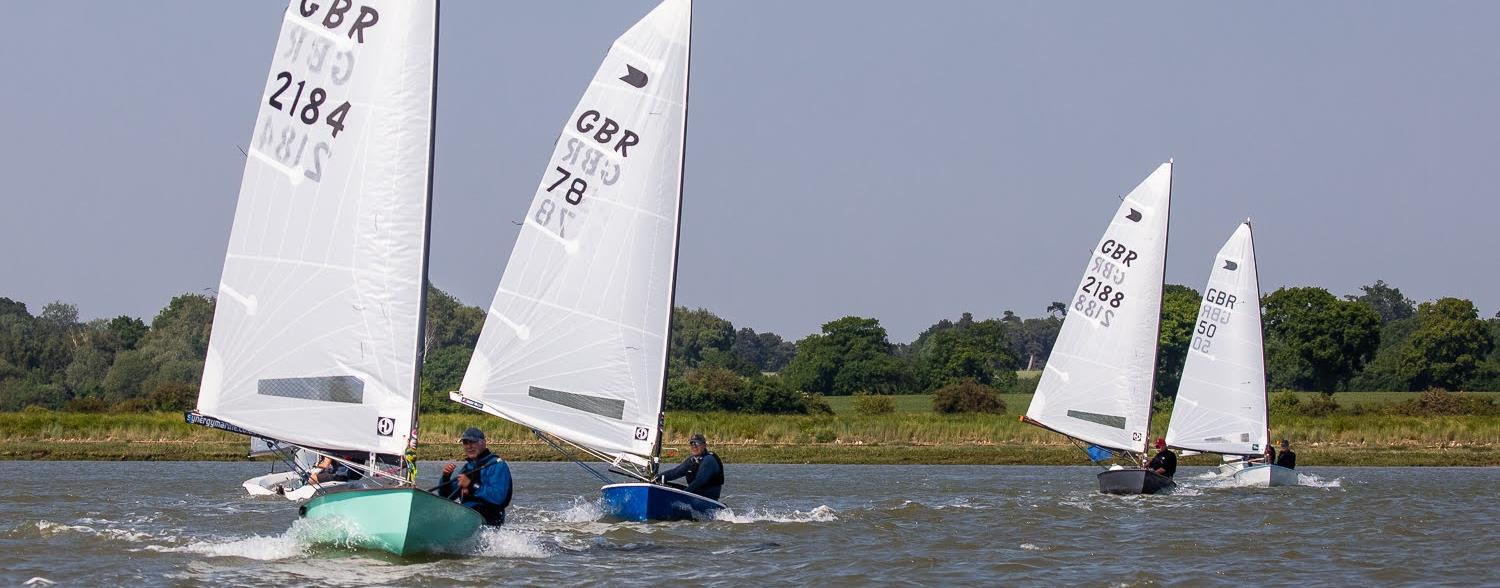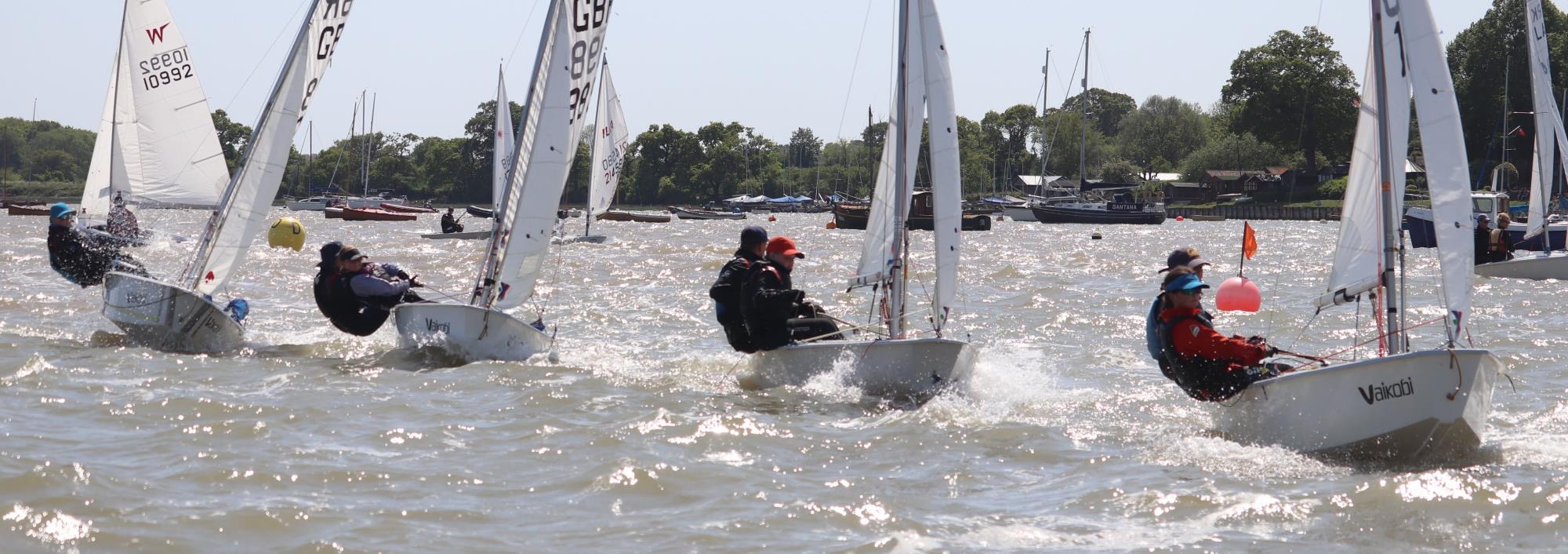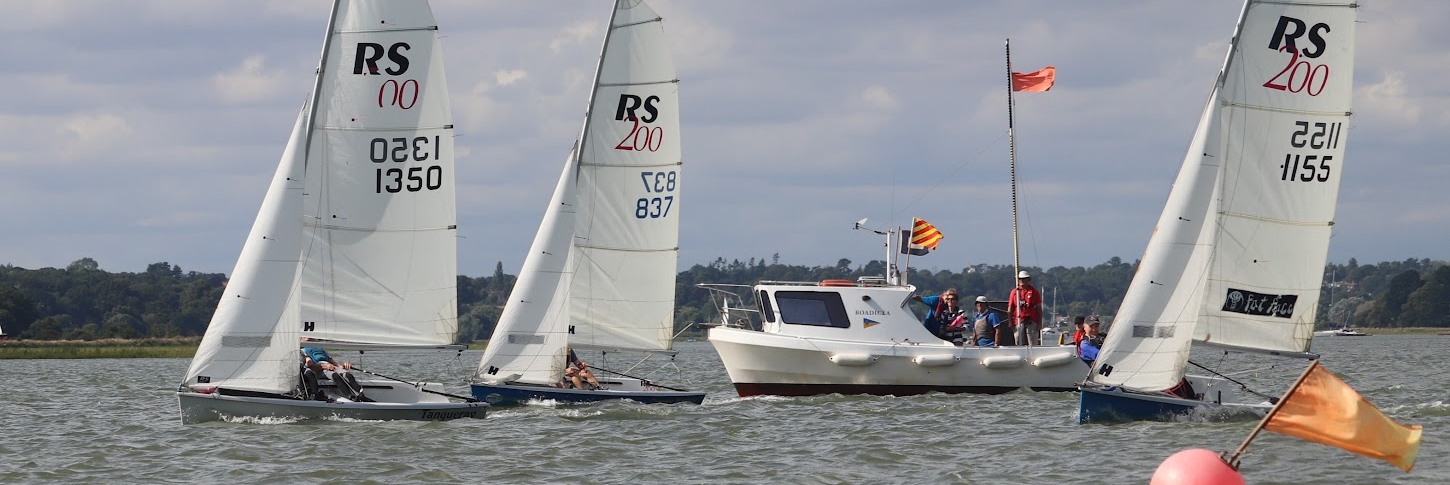WALDRINGFIELD SAILING CLUB
Safeguarding and Child Protection Policy Statement
Waldringfield Sailing Club is committed to safeguarding, from physical, sexual or emotional harm, neglect or bullying, children taking part in its activities. We recognise that the safety, welfare and needs of the child are paramount and that all children, irrespective of age, disability, race, religion or belief, sex, sexual or gender identity or social status, have a right to protection from discrimination and abuse.
For the purposes of this policy anyone under the age of 18 should be considered as a child. All members of the Club should be aware of the policy.
Club Welfare Officers
The Club Welfare Officers are:
Ali Sudell
07979 856 366
Philippe Kerampran
07514 345 193
Staff and Volunteers
All Club staff and volunteers whose role brings them into regular contact with young people will be asked to provide information supporting their skills, experience and competence in their role. The Club Welfare Officer and those regularly instructing, coaching or supervising young
people will also be asked to apply for an Enhanced Criminal Records Disclosure, with Barred List check if appropriate (see Appendix A in the PDF available below).
Good Practice
All members of the Club should follow the good practice guidelines (Document 1 below) and agree to abide by the Club Code of Conduct (Document 2) and the RYA Racing Charter contained in the Racing Rules of Sailing. Those working or volunteering with young people
should be aware of the guidance on recognising abuse (Document 3).
Adults are advised to be accompanied by another adult when they enter the showers and changing rooms at times when children are changing before or after junior/youth training or racing.
Parents and spectators taking photographs should be prepared to identify themselves if requested and state their purpose for photography/filming. If the Club publishes images of children, no identifying information other than names will be included. Any concerns about inappropriate or intrusive photography or the inappropriate use of images should be reported to a Club Welfare Officer.
Concerns
Anyone who is concerned about a young member’s or participant’s welfare, either outside the sport or within the Club, should inform a Club Welfare Officer immediately, in strict confidence.
Any member of the Club failing to comply with the Safeguarding policy or any relevant Codes of Conduct may be subject to disciplinary action under Club Rule D7.
Appendix A Criteria for Requiring DBS Checks
We must start with a presumption of trust and confidence in those who work with children, and the good sense and judgment of Club Management. DBS checks on individuals should only be requested when justified and appropriate.
In order to determine whether the person undertaking a role in the club should undergo a DBS check we will refer to the Government’s DBS check tool. https://www.gov.uk/find-out-dbs-check.
This is a very good starting point as it asks the key questions on the activity involved. It also outlines what level of check is appropriate.
Document 1: Good Practice Guide
Handout for Instructors, Coaches and Volunteers
This guide only covers the essential points of good practice for everyone involved with children and young people. You should also read Waldringfield Sailing Club’s Safeguarding Policy and Procedures which are available for reference at all times.
- Avoid spending any significant time working with children in isolation
- Avoid taking children alone in a car. If necessary, ensure child travels in back seat
- Do not take children to your home as part of your organisation’s activity
- Where any of these are unavoidable, ensure that they only occur with the full
- Knowledge and consent of someone in charge of the organisation or the child’s parents
- Design training programmes that are within the ability of the individual child
- If a child is having difficulty with a wetsuit or buoyancy aid, ask them to ask a friend to help if at all possible
- If you do have to help a child, make sure you are in full view of others, preferably another adult
- Restrict communications with young people via mobile phone, e-mail or social media to group communications about organisational matters. If it’s essential to send an individual message, copy it to the child’s parent or carer.
You should never:
- Engage in rough, physical or sexually provocative games
- Allow or engage in inappropriate touching of any form
- Allow children to use inappropriate language unchallenged, or use such language yourself when with children
- Make sexually suggestive comments to a child, even in fun
- Fail to respond to an allegation made by a child; always act
- Do things of a personal nature that children can do for themselves.
It may sometimes be necessary to do things of a personal nature for children, particularly if they are very young or disabled. These tasks should only be carried out with the full understanding and consent of the child (where possible) and their parents/carers. In an emergency situation which requires this type of help, parents/carers should be fully informed. In such situations it is important to ensure that any adult present is sensitive to the child and undertakes personal care tasks with the utmost discretion.
Document 2: Waldringfield Sailing Club Code of Conduct
It is the policy of Waldringfield Sailing Club that all participants, coaches, instructors, officials, parents and volunteers show respect and understanding for each other, treat everyone equally within the context of the sport and conduct themselves in a way that reflects the principles of the club. The aim is for all participants to enjoy their sport and to improve performance.
Abusive language, swearing, intimidation, aggressive behaviour or lack of respect for others and their property will not be tolerated and may lead to disciplinary action.
As Members, Staff, Temporary members and all Visitors, we will:
- Listen to and accept what you are asked to do to improve your performance and keep you safe
- Respect other participants, coaches, instructors, officials and volunteers
- Abide by the rules and play fairly
- Do our best at all times
- Never bully others either in person, by phone, by text or online
- Take care of all property belonging to other participants, the club and its members
Parents will:
- Support their child’s involvement and help them enjoy their sport
- Help their child to recognise good performance, not just results
- Never force their child to take part in sport
- Never punish or belittle a child for losing or making mistakes
- Encourage and guide their child to accept responsibility for their own conduct and performance
- Respect and support the coach
- Accept officials’ judgements and recognise good performance by all participants
- Use established procedures where there is a genuine concern or dispute
- Inform the club or event organisers of relevant medical information
- Ensure that their child wears suitable clothing and has appropriate food and drink
- Provide contact details and be available when required
- Take responsibility for their child’s safety and conduct in and around the clubhouse/event venue
Coaches, Instructors, Officials and Volunteers will:
- Consider the welfare and safety of participants before the development of performance
- Encourage participants to value their performance and not just results
- Promote fair play and never condone cheating
- Ensure that all activities are appropriate to the age, ability and experience of those taking part
- Build relationships based on mutual trust and respect
- Work in an open environment
- Avoid unnecessary physical contact with young people
- Be an excellent role model and display consistently high standards of behaviour and appearance
- Do not drink alcohol or smoke when working directly with young people
- Communicate clearly with parents and participants
- Be aware of any relevant medical information
- Follow RYA and club/class guidelines and policies
- Holders of RYA Instructor and Coach qualifications must also comply with the RYA Code of Conduct.
- Holders of RYA Race Official appointments must also comply with the RYA Race Officials Code of Conduct.
If you are concerned that someone is not following the Code of Conduct, you should inform your Club Welfare Officer (Ali Sudell 07979856366 or Philippe Kerampran 07514 345 193) or the person in charge of the activity.
Document 3: What is child abuse?
Taken from the RYA Safeguarding and Child Protection Policy and Guidelines Revised Feb 2018.
(Based on the statutory guidance ‘Working Together to Safeguard Children’)
Abuse and neglect are forms of maltreatment of a child. Somebody may abuse or neglect a child by inflicting harm, or by failing to act to prevent harm. Children may be abused in a family or in an institutional or community setting by those known to them or, more rarely, by others (including via the internet). They may be abused by an adult or adults, or another child or children.
Physical abuse may involve adults or other children inflicting physical harm:
- by hitting, shaking, throwing, poisoning, burning or scalding, drowning or
suffocating - giving children alcohol or inappropriate drugs
- in sport situations, physical abuse might also occur when the nature and intensity of training exceeds the capacity of the child’s immature and growing body.
Emotional abuse is the persistent emotional maltreatment of a child such as to cause severe and persistent adverse effects on the child’s emotional development. It may involve:
- conveying to a child that they are worthless, unloved or inadequate
- not giving the child opportunities to express their views, deliberately silencing them or ‘making fun’ of what they say or how they communicate
- imposing expectations which are beyond the child’s age or developmental capability
- overprotection and limitation of exploration and learning or preventing the child from participating in normal social interaction
- allowing a child to see or hear the ill-treatment of another person
- serious bullying (including cyber bullying), causing children frequently to feel frightened or in danger
- the exploitation or corruption of children
- emotional abuse in sport might also include situations where parents or coaches subject children to constant criticism, bullying or pressure to perform at a level that the child cannot realistically be expected to achieve.
Some level of emotional abuse is involved in all types of maltreatment of a child.
Sexual abuse involves an individual (male or female, or another child) forcing or enticing a child or young person to take part in sexual activities, whether or not the child is aware of what is happening, to gratify their own sexual needs. The activities may involve:
- physical contact (eg. kissing, touching, masturbation, rape or oral sex)
- involving children in looking at, or in the production of, sexual images
- encouraging children to behave in sexually inappropriate ways or watch sexual activities
- grooming a child in preparation for abuse (including via the internet)
- sport situations which involve physical contact (eg. supporting or guiding children)
- could potentially create situations where sexual abuse may go unnoticed. Abusive situations may also occur if adults misuse their power over young people.
Neglect is the persistent failure to meet a child’s basic physical and/or psychological needs, likely to result in the serious impairment of the child’s health or development.
Neglect may involve a parent or carer failing to:
- provide adequate food, clothing and shelter
- protect a child from physical and emotional harm or danger
- ensure adequate supervision
- ensure access to appropriate medical care or treatment
- respond to a child’s basic emotional needs
- neglect in a sport situation might occur if an instructor or coach fails to ensure that children are safe, or exposes them to undue cold or risk of injury.
Child sexual exploitation is a form of child sexual abuse. It occurs where an individual or group takes advantage of an imbalance of power to coerce, manipulate or deceive a child or young person under the age of 18 into sexual activity in exchange for something the victim needs and wants (eg. attention, money or material possessions, alcohol or drugs), and/or for the financial advantage or increased status of the perpetrator or facilitator. The victim may have been exploited even if the sexual activity appears consensual. Child sexual exploitation can also occur online without involving physical contact.
Extremism goes beyond terrorism and includes people who target the vulnerable – including the young – by seeking to: sow division between communities on the basis of race, faith or denomination; justify discrimination e.g. towards women and girls; persuade others that minorities are inferior; or ague against the primacy of democracy and the rule of law in our society.
Bullying (not included in ‘Working Together’ but probably more common in a sport situation than some of the other forms of abuse described above)
Bullying (including online bullying, for example via text or social media) may be seen as deliberately hurtful behaviour, usually repeated or sustained over a period of time, where it is difficult for those being bullied to defend themselves. The bully is often another young person. Although anyone can be the target of bullying, victims are typically shy, sensitive and perhaps anxious or insecure. Sometimes they are singled out for physical reasons – being overweight or physically small, being gay or lesbian, having a disability or belonging to a different race, faith or culture.
Bullying can include:
- physical pushing, kicking, hitting, pinching etc
- name calling, sarcasm, spreading rumours, persistent teasing and emotional torment through ridicule, humiliation or the continual ignoring of individuals
- posting of derogatory or abusive comments, videos or images on social network sites
- racial taunts, graffiti, gestures, sectarianism
- sexual comments, suggestions or behaviour
- unwanted physical contact.
The acronym STOP – Several Times On Purpose – can help you to identify bullying behaviour.
Recognising Abuse
It is not always easy, even for the most experienced carers, to spot when a child has been abused. However, some of the more typical symptoms which should trigger your suspicions would include:
- unexplained or suspicious injuries such as bruising, cuts or burns, particularly if situated on a part of the body not normally prone to such injuries
- sexually explicit language or actions
- a sudden change in behaviour (eg. becoming very quiet, withdrawn or displaying sudden outbursts of temper)
- the child describes what appears to be an abusive act involving him/her
- a change observed over a long period of time (eg. the child losing weight or becoming increasingly dirty or unkempt)
- a general distrust and avoidance of adults, especially those with whom a close relationship would be expected
- an unexpected reaction to normal physical contact
- difficulty in making friends or abnormal restrictions on socialising with others.
It is important to note that a child could be displaying some or all of these signs, or behaving in a way which is worrying, without this necessarily meaning that the child is being abused. Similarly, there may not be any signs, but you may just feel that something is wrong. If you have noticed a change in the child’s behaviour, first talk to the parents or carers. It may be that something has happened, such as a bereavement, which has caused
the child to be unhappy.
If you are concerned
If there are concerns about sexual abuse or violence in the home, talking to the parents or carers might put the child at greater risk. If you cannot talk to the parents/carers, consult your organisation’s designated Welfare/Safeguarding Officer or the person in charge. It is this person’s responsibility to make the decision to contact Children’s Social Care Services or the Police. It is NOT their responsibility to decide if abuse is taking place, BUT it is their
responsibility to act on your concerns.
You can access our full policy here;
Safeguarding and Child Protection Policy
Our self-declaration form can be downloaded here;
Last updated: June 2025


















